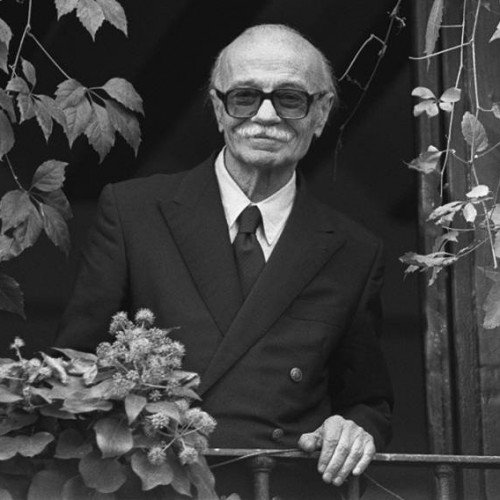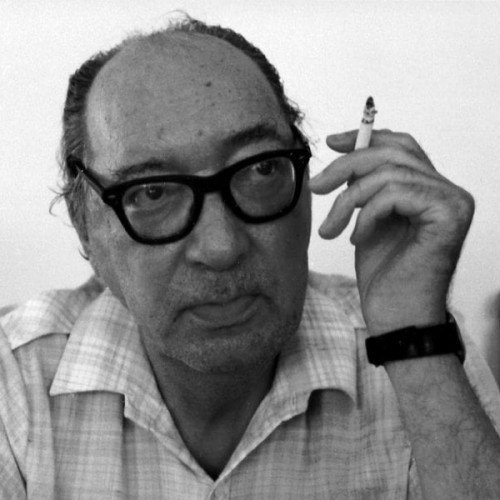Best Latin American Writers

Ernesto Sábato
Ernesto Sabato (June 24, 1911 – April 30, 2011) was an Argentine novelist, essayist, painter and physicist. According to the BBC he "won some of the most prestigious prizes in Hispanic literature" and "became very influential in the literary world throughout Latin America".[2] Upon his death El País dubbed him the "last classic writer in Argentine literature".[3] Sabato was distinguished by his bald pate and brush moustache and wore tinted spectacles and open-necked shirts.[4] He was born in Rojas, a small town in Buenos Aires Province. Sabato began his studies at the Colegio Nacional de La Plata. He then studied physics at the Universidad Nacional de La Plata, where he earned a PhD. He then attended the Sorbonne in Paris and worked at the Curie Institute. After World War II, he lost interest in science and started writing. Sabato's oeuvre includes three novels: El Túnel (1948), Sobre héroes y tumbas (1961) and Abaddón el exterminador (1974). The first of these received critical acclaim upon its publication from, among others, fellow writers Albert Camus and Thomas Mann.[1] The second is regarded as his masterpiece, though he nearly burnt it like many of his other works.[2] Sabato's essays cover topics as diverse as metaphysics, politics and tango.[2] His writings led him to receive many international prizes, includingthe Miguel de Cervantes Prize (Spain), the Legion of Honour (France), and the Prix du Meilleur Livre Étranger (France).[1] At the request of President Raúl Alfonsín, he presided over the CONADEP commission that investigated the fate of those who suffered forced disappearance during the Dirty War of the 1970s. The result of these findings was published in 1984 bearing the title Nunca Más (Never Again).
Statistics for this Xoptio

Juan Carlos Onetti
Juan Carlos Onetti Borges (July 1, 1909 – May 30, 1994) was a Uruguayan novelist and author of short stories. A high school drop-out, Onetti's first novel, El pozo, published in 1939, met with his close friends' immediate acclaim, as well as from some writers and journalists of his time. 500 copies of the book were printed, most of them left to rot at the only bookstore that sold it, Barreiro (the book was not reprinted until the 60's, with an introduction and preliminary study by Ángel Rama). Aged 30, Onetti was already working as editing secretary of the famous weekly Uruguayan newspaper Marcha. He had lived for some years in Buenos Aires, where he published short stories and wrote cinema critiques for the local media, and met and befriended the notorious novelist and journalist Roberto Arlt, author of the novels El juguete rabioso, Los siete locos, Los lanzallamas. He went on to become one of Latin America's most distinguished writers, earning Uruguay National Literature Prize in 1962. He was considered a senior member of the 'Generation of 45', a Uruguayan intellectual and literary movement: Carlos Maggi, Manuel Flores Mora, Ángel Rama, Emir Rodríguez Monegal, Idea Vilariño, Carlos Real de Azúa, Carlos Martínez Moreno, Mario Arregui, Mauricio Muller, José Pedro Díaz, Amanda Berenguer, Tola Invernizzi, Mario Benedetti, Ida Vitale, Líber Falco, Juan Cunha, among others.[3] In 1974, he and some of his colleagues were imprisoned by the military dictatorship. Their crime: as members of the jury, they had chosen Nelson Marra's short story El guardaespaldas (i.e. "The bodyguard") as the winner of Marcha's annual literary contest. Due to a series of misunderstandings (and the need to fill some space in the following day's edition), El guardaespaldas was published in Marcha, although it had been widely agreed among them that they shouldn't and wouldn't do so, knowing this would be the perfect excuse for the military to intervene, considering the subject of the story (the interior monologue of a top-rank military officer who recounts his murders and atrocious behavior, much as it was happening with the functioning regime). Onetti left his native country (and his much-loved city of Montevideo) after being imprisoned for 6 months in Colonia Etchepare, a mental institution. A long list of world-famous writers -including Gabriel García Márquez, Mario Vargas Llosa and Mario Benedetti – signed open letters addressed to the military government of Uruguay.